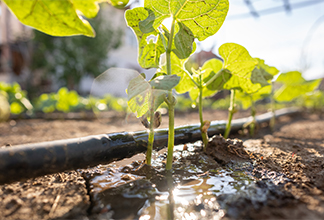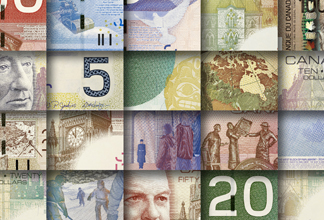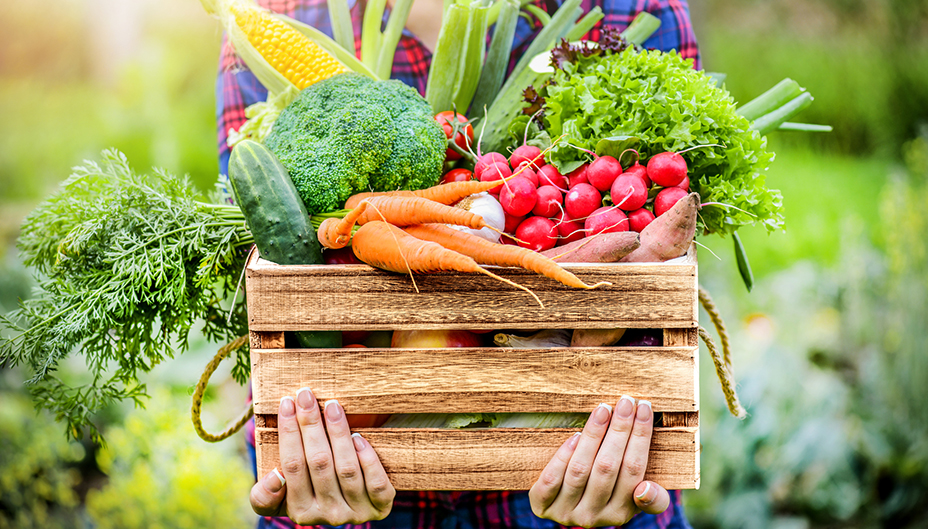Hitting Net-Zero Means Rethinking How Canada Grows (and Buys and Eats) Food
Written by The Inspired Investor Team
Published on March 11, 2022
minute read
Share:
Canadian investors faced with the complex issue of climate change may be familiar with some potential solutions to a warming planet, like reducing fossil-fuel emissions. However, it's worth considering how our food choices and agriculture — an industry that generates about 10 per cent of Canada's greenhouse gases, according to RBC research — can also play a role in greening our economy.
In the RBC podcast Disruptors, co-hosts John Stackhouse and Trinh Theresa Do are joined by guests Michael McCain, CEO of Maple Leaf Foods, and regenerative agriculture expert Brent Preston to discuss how the food we grow, buy, cook and consume fit into Canada's climate conversation. How can farmers and agriculturalists slash their carbon footprint to help move us closer to net-zero? And how can consumers do their part? Here are some key takeaways from their conversation.
Farming faces significant challenges on the road to net-zero
Science has proven climate change is real, here, and already affecting most industries — but especially farming and food. “Agrafood is one of the principal contributors to the climate crisis we face," says McCain. The lion's share of emissions come from two sources: manure (methane) and grain production.
Nitrogen is the biggest challenge to greening agriculture
Nitrogen fertilizer is Canadian agriculture's single greatest source of harmful emissions, explains regenerative agriculture expert Brett Preston, and anything that reduces its use has an immediate benefit to the climate. One example is "cover cropping" — that's fast-growing crops like rye or buckwheat to put nitrogen back into the soil. It's easy, accessible and reduces fertilizer use, so why aren't all farmers doing this? “There's an initial cost, then it takes three to five years to see private economic benefits," says Preston. Many farmers can't swing this immediate hit for a long-term pay-off.
But pay attention to methane emissions, too
Just how bad is manure in mucking up our carbon footprints? Pretty bad, actually. Because of methane's higher concentration compared to carbon gas, it is estimated to have 28 times the environmental impact of carbon. Solutions? McCain points out two technologies with the potential to transform agriculture from part of the problem to part of the solution in the next 10 years: regenerative agriculture and anaerobic digestion. (Huh? Read on.)
Farming can actually repair some of the damage
Regenerative agriculture and anaerobic digestion doesn't just slash emissions in the future; they actually repair damage done in the past. Here's how: “Anaerobic digestion is a technology that takes the methane from manure, concentrates it, intensifies it, captures it, then converts it to a renewable fuel," explains McCain. Applied broadly across the animal-meat production system, scientists can actually reverse the negative effects of poor farming practices to put that carbon back into the soil where it belongs.
Why the world needs less food — not more
Every country and continent actually has more calories available than human beings need, says Preston. The real problem is where those calories are going, like “to corn, meat and highly-processed food that don't make people healthy." Malnutrition is caused by inadequate distribution of food, not lack of it.
What do people — and customers and consumers — really want?
McCain explains that consumers tend to set priorities by what goes in their body, what goes on their body and what's around their body. It's this last one that considers challenges like food insecurity and affordability — if a consumer faces either, carbon neutrality will likely move down their list of priorities.
Low Canadian food prices come at a cost
There's a lot of ink spilled on the so-called “Green Premium," but before you get irked at the price tag of organic fruit, Preston reminds us that food is as plentiful in Canada as it's ever been. Canadians pay less for food than any other country on the planet, and spend less time to earn it than any civilization in human history. What we don't pay at the supermarket, he notes, isn't free — workers, farmers and the environment all feel the impacts.
Preston urges Canadians to shop wisely to build a greener chain, because the old adage holds true: Money talks, vote with your feet — and you get what you pay for.
RBC Direct Investing Inc. and Royal Bank of Canada are separate corporate entities which are affiliated. RBC Direct Investing Inc. is a wholly owned subsidiary of Royal Bank of Canada and is a Member of the Investment Industry Regulatory Organization of Canada and the Canadian Investor Protection Fund. Royal Bank of Canada and certain of its issuers are related to RBC Direct Investing Inc. RBC Direct Investing Inc. does not provide investment advice or recommendations regarding the purchase or sale of any securities. Investors are responsible for their own investment decisions. RBC Direct Investing is a business name used by RBC Direct Investing Inc. ® / ™ Trademark(s) of Royal Bank of Canada. RBC and Royal Bank are registered trademarks of Royal Bank of Canada. Used under licence.
© Royal Bank of Canada 2022.
Any information, opinions or views provided in this document, including hyperlinks to the RBC Direct Investing Inc. website or the websites of its affiliates or third parties, are for your general information only, and are not intended to provide legal, investment, financial, accounting, tax or other professional advice. While information presented is believed to be factual and current, its accuracy is not guaranteed and it should not be regarded as a complete analysis of the subjects discussed. All expressions of opinion reflect the judgment of the author(s) as of the date of publication and are subject to change. No endorsement of any third parties or their advice, opinions, information, products or services is expressly given or implied by RBC Direct Investing Inc. or its affiliates. You should consult with your advisor before taking any action based upon the information contained in this document.
Furthermore, the products, services and securities referred to in this publication are only available in Canada and other jurisdictions where they may be legally offered for sale. If you are not currently resident of Canada, you should not access the information available on the RBC Direct Investing Inc. website.
Explore More

How Soil Carbon Can Become Canadian Farmers' Next Cash Crop
Sustainable practices may mean untapped profits for Canadian farmers, says RBC Economics and Thought Leadership.
minute read

Diversity in Tech: "I Think This Is the Time," Says Lightspeed CEO
Key takeaways from a conversation on Black representation in a recent episode of Disruptors, an RBC podcast.
minute read

Did Your Pick for the New $5 Bill Make the Cut?
The Bank of Canada has narrowed down the face of the next $5 bill to eight notable people.
minute read
Inspired Investor brings you personal stories, timely information and expert insights to empower your investment decisions. Visit About Us to find out more.







